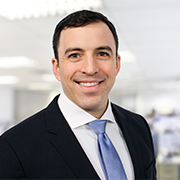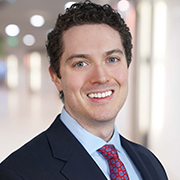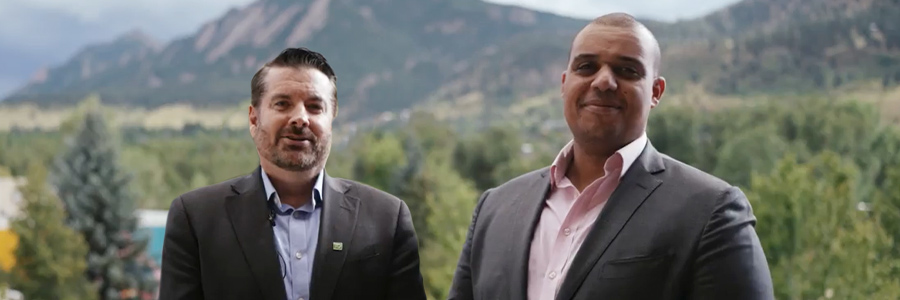Guest: Kevin Kopelman, Managing Director, TMT - Online Travel & Hotels Research Analyst, TD Cowen
Host: Tom Fitzgerald, Vice President, Equity Research, TD Cowen
The post-COVID travel surge continues despite the occasional air pocket. The Wheels Up series of TD Cowen Insights podcasts introduces Tom Fitzgerald, TD Cowen's airline analyst, with Kevin Kopelman, TD Cowen's senior hotels and online travel analyst, discussing major dynamics across airlines, hotels, online travel, summer 2024 and key industry debates as we head into 2025.
This podcast was originally recorded on September 24, 2024.
Speaker 1:
Welcome to TD Cowen Insights, a space that brings leading thinkers together to share insights and ideas shaping the world around us. Join us as we converse with the top minds who are influencing our global sectors.
Tom Fitzgerald:
Hi everyone. Welcome back to the Wheels Up podcast. My name is Tom Fitzgerald, airlines analyst at TD Cowen. I'm joined today by my colleague Kevin Kopelman, who covers hotels and online travel. We're going to recap the summer travel season, the main topics in airlines and hotels heading into the fall and early thoughts on 2025. Kevin, I can say for the airline side it's been a pretty volatile summer. Airlines came into the July earnings season talking about way too much domestic supply and that had that weighing down pricing pretty broadly.
But encouragingly, as we move into the fall, domestic supply has really come out of the system pretty rapidly and we've seen prices firm up and excitingly this is coming against the backdrop of easing fuel prices. So we think there's a lot of upside to airline numbers as we look out into the second half of the year. And broadly, as long as the macroeconomy hangs in and unemployment stays relatively low, we think travel should be pretty solid and continue to normalize in line with GDP but love to hear what you're seeing on the hotel space.
Kevin Kopelman:
Yeah, for sure, and we've had a little bit less volatility I would say, but certainly if we go back a few months, there was a good amount of macro concern. I think the hotel companies helped assuage some of those fears. Did talk about second half slowing a little bit primarily from higher growth international markets coming back down to earth, more normal growth rates. If we drill into the US numbers, US hotel numbers continue to be overall pretty stable adjusting for calendar shifts, continues to grow well below GDP, nominal GDP, but so you had the first half of the year was up about 1.5% on revenue for hotels. Looking at Q3, July was weak but it was clearly anticipated by the hotel companies. We saw August bounce back, so to date pretty much average.
Looking at September, first half of September numbers for US hotel have been soft, mostly due to some calendar shift with some of the Labor Day travel falling into August, but it's also expected to be stronger in the second half of the month. So altogether, I think when you look at what the hotel companies have been saying, it's been trending pretty in line and relatively stable. Looking ahead to the fourth quarter, it is generally expected to be a little bit softer, primarily around weaker group travel around the election, a couple of weeks around the election and also on Rosh Hashanah timing, so expecting it to be a little bit softer, but generally really pretty stable. That's the general message.
Tom Fitzgerald:
That's really interesting. We've heard similar things from the airlines about the election being a little disruptive on corporate travel, but the industry will also be lapping some favorable comps. There was the auto strike last year which was massively disruptive out of corporate travel out of Detroit. The writer strike in LA which hit that big LAX hub. So I think there's going to be some puts and takes on corporate travel demand. Kevin, is there any differentiation on domestic versus international broadly as you look out into next year? It's been a big theme on the airline side.
Kevin Kopelman:
Yeah, absolutely. I think the corollary to the weaker US numbers has been that Europe has been very strong. It's been growing above long-term rates and that continued for this summer and there was definitely benefit from all of the big events there. So you had the EuroCup, you had the Olympics, Taylor Swift was soaring around Europe and all of that benefited Europe in the summer. When you look at APAC, they were benefiting, the ex-China APAC countries were benefiting from Chinese travelers going outbound.
And then the tough market has been China domestic for sure. Really since pretty early on in Q2, China's had meaningful year-over-year declines in rates. There's that cannibalization of a lot of their travelers going outbound, traveling internationally across APAC, a little bit into Europe and that has stabilized somewhat but continues to be pressured and you saw that show up in the hotel numbers with their incentive fees being hit year-over-year. So a little bit of a hit to revenue growth for the hotel companies. Looking forward for next year, it should be an easier comp if there's not another leg down, it should be an easier comp on that China incentive fees. So that's one thing to look forward to.
Tom Fitzgerald:
Yeah, China's been a pain point for the airlines as well, and also partly due to geopolitical concerns and with the war in Ukraine and not being able to overfly Russia that has a significant amount of flight time and fuel cost and doesn't make the flying as profitable as it once was. But Asia Pacific continues to recover nicely over overall. Ex-China, it's still the last market to recover post-COVID so pricing continues to look very strong. Margins are looking very good in that environment.
And we saw, you know, you mentioned incentives on the China market. We saw demand in the US the first half of the year was running up about mid-single digits and as supplies pulled out of the market and as carriers are not discounting as aggressively, we've seen traffic numbers slow pretty dramatically below single digits. But keep in mind this is much more high quality. It's people sitting at the front of the cabin and airlines continue to talk premium leisure demand, outpacing main cabin demand pretty strongly and that's been a really great theme for the industry as they continue to improve their revenue segmentation ability and drive higher profitability.
Kevin Kopelman:
When did you see that slow down in the US passenger numbers?
Tom Fitzgerald:
It was really coming into September. August and July we're both up about five to 6% year-on-year, and then September has been up about 1% month to date. We're recording this on September 24th and yeah, there's some days it's about flat, couple days here there it's been down year-on-year, but it's been a lot more muted and supply's only up about two to 3% year-on-year versus in the summer. Especially in the domestic, you had supply up close to a high single digit so it's lower volumes, but better pricing and higher quality customers so that's all -- the airlines will take that any day of the week.
Kevin Kopelman:
I think a really interesting dynamic is how some of the airline numbers have really diverged from the hotel numbers. If you look at the US hotel industry, the Knights have really hovered right around where they were in 2019 and initially it was recovering faster than airlines and then you saw your airline numbers go up to new highs, whereas the hotels it's really been stuck around those 2019 levels and we're flattish year to date even as the air passengers were growing. So there was clearly some shift to air travel happening on a year-over-year basis because we weren't seeing it in the hotel numbers. I think it'll be really interesting to watch as we get more of these September numbers for the hotel, because certainly month to date in US hotels also been on the weaker side for Knights.
Tom Fitzgerald:
Yeah. How's the sector looking for growth broadly next year, Kevin? Does the Fed recently cutting rates, is that going to induce any more construction?
Kevin Kopelman:
Yeah, so I think this is really important to talk about and obviously I would start off by saying we're watching the jobs numbers really closely and we had the two conflicting job reports, the unemployment rate and new jobs added, and you really want to see higher jobs grow to help spur travel overall, and that's obviously one of the big debates. But the part that we absolutely feel better about with rate cuts starting is more hotels starting to be constructed and the new projects starting to open at a better pace because unit growth has been really interesting for the hotels in that the pipelines have been really strong, but the actual pace of openings has been disappointing, I would say across the board year to date. And the problem has been in part on this financing and getting new construction started so that should help as we look to next year.
Tom Fitzgerald:
Yeah, that's really interesting. On the airline side, coming out of COVID in 2022 and early '23, there was so much demand, but the airlines didn't really have the planes to tap it and supply chains were very backed up both with Boeing and with Airbus as well as on the engine side and the maintenance side as well. But now, I mean the supply chain hasn't really improved at all, but many airlines are in the position where they probably have too many planes as it is, and these supply chain delays and the willingness of OEMs to work on deferrals is probably a good thing. But yeah, there's definitely been a shortage of aircraft and that doesn't seem set to abate anytime soon. So what are the other big themes going on in the hotel space, Kevin? What are some of the big debates?
Kevin Kopelman:
One debate to touch on is the booking window. So this is how far in advance people are booking and the theme coming out of Q2 earnings for the online travel companies was that all of the largest online travel companies said they saw some weakening of the booking window so people were less willing to book trips far in advance. This is an important metric. It's not reported rigorously, but you get color on it. It's an important metric because primarily it's a macro indicator. So if consumers are feeling less confident, they may be less willing to go ahead and book that trip that's 2, 3, 4 months out. But the flip side of that is it can also be very volatile. Month to month it can move around, and this was definitely a shift that they talked about, but you don't know are those last minute bookings going to come in and make up for the difference.
Is underlying growth really slowing? And I would say we still don't know the answer to that, but what I would point out is that in the month of July, which is where the companies were talking about the booking window weakness, you had a lot of events that were potentially distracting consumers or distracting people from finishing your booking. So you had the EuroCup, which finished in July, then there was the assassination attempt which had people glued to their TVs, and then the Olympics started through August. So it's possible that that had some influence in those booking window numbers and you could see some bounce back. It's probably a little bit of both.
Tom Fitzgerald:
Yeah, I know on the airline side that we heard that close in bookings surprise to the upside this past September, which is a positive, but it does tend to be a very volatile metric. The Olympics were also mentioned as a headwind this summer, but Delta encouragingly, they said it was almost like a light switch was flipped that once the Olympics was in the rearview to that travel really surged back into Europe, which is encouraging. We see the lack of change fees as airlines moved further away from those after the pandemic. We think that's been elongating the booking window, which is great, especially from a cash flow management perspective for the airlines.
Is the shoulder season come up as a theme at all because I know for the airlines, a lot of management teams will talk about, you have this demographic cohort with the baby boomer generation that's pretty flushed on their nest egg and taking advantage of their golden years to travel a lot more. And then that coupled with July and August being a lot hotter and more crowded in Europe, you see September and October performing really well among that age demographic, especially in the front part of the cabin, which is exciting and helping to boost a weaker period of the year.
Kevin Kopelman:
Yeah, it hasn't been as big of a topic I would say compared to if we look broadly last couple of years compared to pre-pandemic, I would say the summer seasons have generally been stronger compared to the shoulder seasons, but it seems like it may be normalizing where we're not really seeing a whole lot of change here on a year-over-year basis. So as we're thinking about Q4 the big topic's really been that how much is the election going to weigh on the US? I think that's where investors are focused for Q4.
Tom Fitzgerald:
Yeah. Yeah. No, I agree. But it does seem like as long as the economy keeps hanging in, it seems like we should have another solid year of travel demand in 2025. And I know the airlines have their work cut out for them to try to absorb some of their labor deals that they've signed in recent years. But I think that just helps to emphasize how important having these diverse revenue streams and having the high-margin revenue streams to navigate this environment has become and really bifurcating between the haves and the have-nots. All right, well I think that's kind of it, but thanks so much for everybody and it should be an exciting fall and we'll be back on this space to watch it unfold.
Speaker 1:
Thanks for joining us. Stay tuned for the next episode of TD Cowen Insights.
This podcast should not be copied, distributed, published or reproduced, in whole or in part. The information contained in this recording was obtained from publicly available sources, has not been independently verified by TD Securities, may not be current, and TD Securities has no obligation to provide any updates or changes. All price references and market forecasts are as of the date of recording. The views and opinions expressed in this podcast are not necessarily those of TD Securities and may differ from the views and opinions of other departments or divisions of TD Securities and its affiliates. TD Securities is not providing any financial, economic, legal, accounting, or tax advice or recommendations in this podcast. The information contained in this podcast does not constitute investment advice or an offer to buy or sell securities or any other product and should not be relied upon to evaluate any potential transaction. Neither TD Securities nor any of its affiliates makes any representation or warranty, express or implied, as to the accuracy or completeness of the statements or any information contained in this podcast and any liability therefore (including in respect of direct, indirect or consequential loss or damage) is expressly disclaimed.


Kevin Kopelman, CFA
Managing Director, TMT - Online Travel & Hotels Research Analyst, TD Cowen

Kevin Kopelman, CFA
Managing Director, TMT - Online Travel & Hotels Research Analyst, TD Cowen
Kevin Kopelman is a Managing Director and research analyst covering hotels and online travel at TD Cowen. He joined the firm in 2006 and has specialized in e-commerce, online travel, online advertising and online media companies. He graduated cum laude from the University of Florida with a BSBA in finance and a BA in Spanish and also studied at the Universidad Autonoma in Madrid and the Russian State University for the Humanities in Moscow. Mr. Kopelman is a CFA charterholder.


Tom Fitzgerald
Vice President, Equity Research, TD Cowen

Tom Fitzgerald
Vice President, Equity Research, TD Cowen
Tom Fitzgerald is a vice president covering airlines and air-related industries. He joined TD Cowen in 2021 and is a CFA charterholder.






